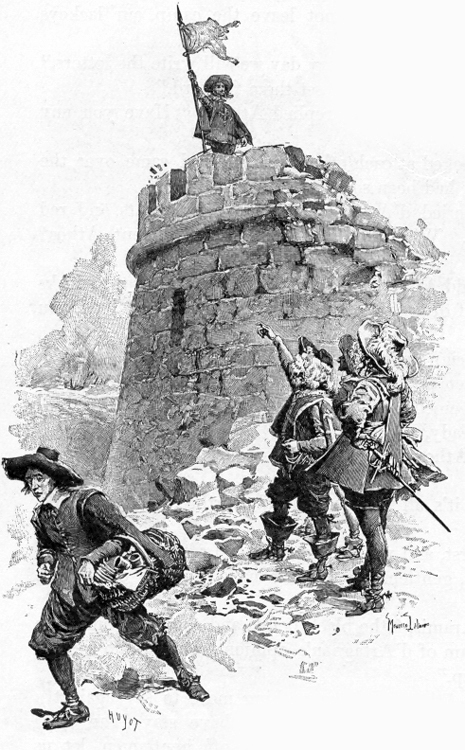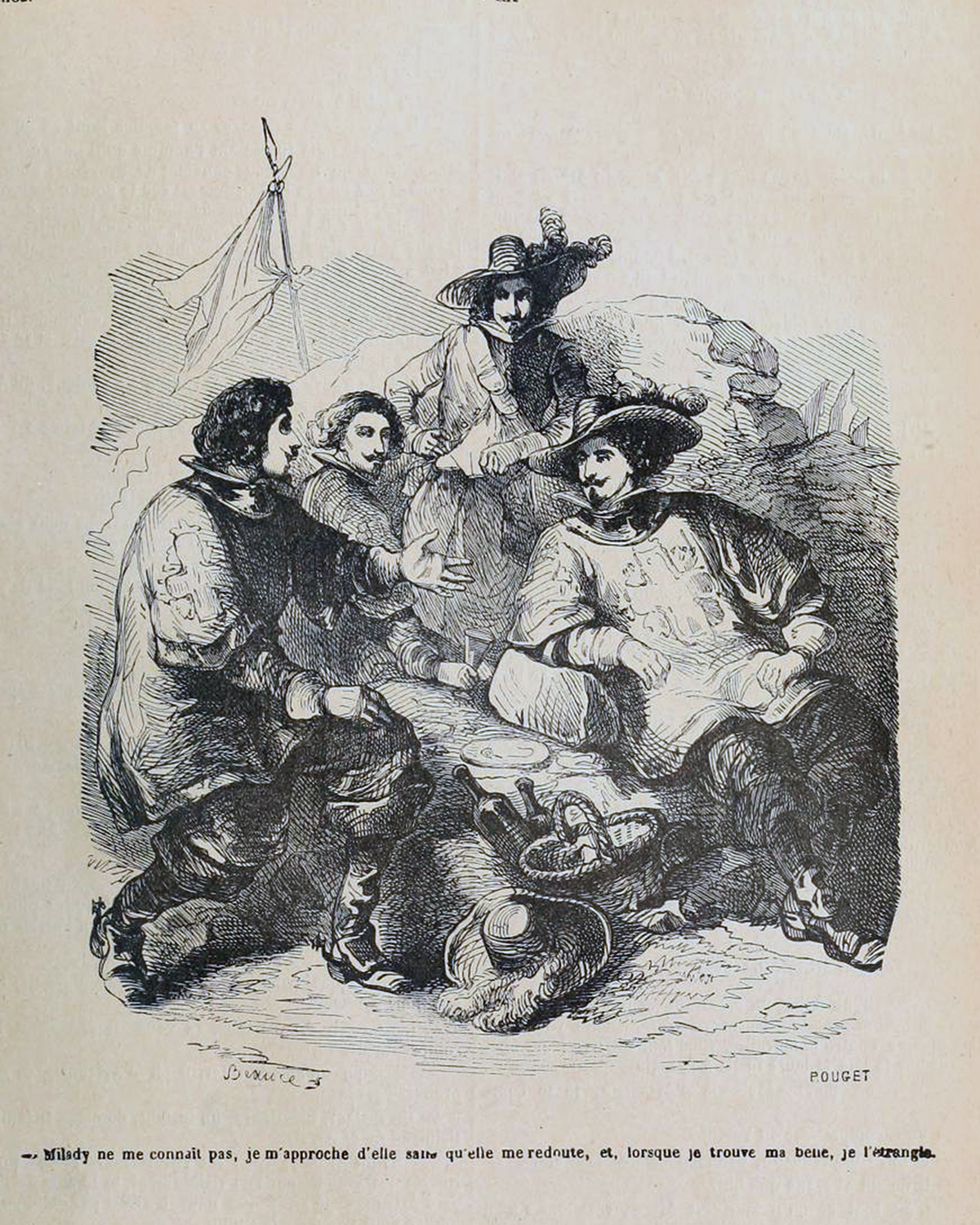The battlefield déjeuner sur l’herbe in The Three Musketeers set a pattern for sardonic picnic humor. *
Dumas and Auguste Maquet (his co-author) add comic relief to the severe Siege of La Rochelle when during a lull in the battle, Athos makes a bet that he, D’Artagnan, Porthos, and Aramis will have a successful dejeuner sur l’herbe in the Bastion Saint Gervais. Of course, this is ironic, for the bastion is in a hotly contested in no man’s land, and it’s Athos’ whacky idea of a “safe” place to conduct a sensitive discussion away from Cardinal Richelieu’s spies. (Dumas and Maquet maintain the distinction the a déjeuner sur l’herbe is outdoors and a pique-nique is indoors).
Grimaud, Athos’ servant, lugs a heavy basket, pannier, of cutlets and chicken, bread and wine (lots of it), and when he’s finished laying a cloth on the earthen floor, the Musketeers sit with legs crossed like Turks or tailors. Though the tower smells of death, twelve decomposing soldiers, the Musketeers are undeterred from picnicking.
When the bastion is attacked, Athos attaches a napkin to a pike and flies it at the top of the bastion. When the Musketeers rout their enemy, they count how many they have killed (at least fifteen?) and plan to return to their camp with victory assured. Leaving, Aramis jests that they have forgotten the white napkin. But Athos does not get the joke. “The white flag, morbleu!” he says, “We must not leave a flag in the hands of the enemy, even if that flag is but a napkin.” So defying musket balls whizzing about him, Athos rushes to retrieve his serviette. Bravo, Musketeers!

Maurice Leloir. Athos raises his white napkin ending the Musketeers’ picnic at Bastion Saint-Gervais. Carrying the picnic basket, Athos’ servant Grimaud hastens to return to safety. Athos waves his flag.
Featured Image: Jean Achille Pouget. The picnic at Bastion Saint-Gervais. Pouget takes the liberty of having the quartet shown here at their déjeuner sur l’herbe, though Dumas has it inside the tower—and there is no grass. And they are not sitting like Turks or tailors.
* A bastion is a bump-out built at an angle to the main wall of a fortification. The Siege of La Rochelle”(1627/28) ended when King Louis XIII, a Catholic, defeated the French Huguenots. Leonid Andreyev, Alberto Moravia, Fernand Arrabal, Gunter Grass, and Sloan WAthos’have written battlefield picnics.
See Alexandre Dumas and Auguste Maquet. Les Trois Musquetaires. Paris: Le Siècle, 1844; Alexandre Dumas. The Three Musketeers. Ed. Translated by Richard Pevear. New York: Penguin Books, 2007; Alexandre Dumas. Oeuvres Illustrés. 2 vols. Paris: Calmann Lévy and Lecrivain and Toubon; Alexandre Dumas. The Three Musketeers. Translated by William Robson. Illustrated by Maurice Leloir. Engraved by J. Huytot. London: George Routledge and Sons, 1922. Rpt. New York: D. Appleton and Co., 1895

